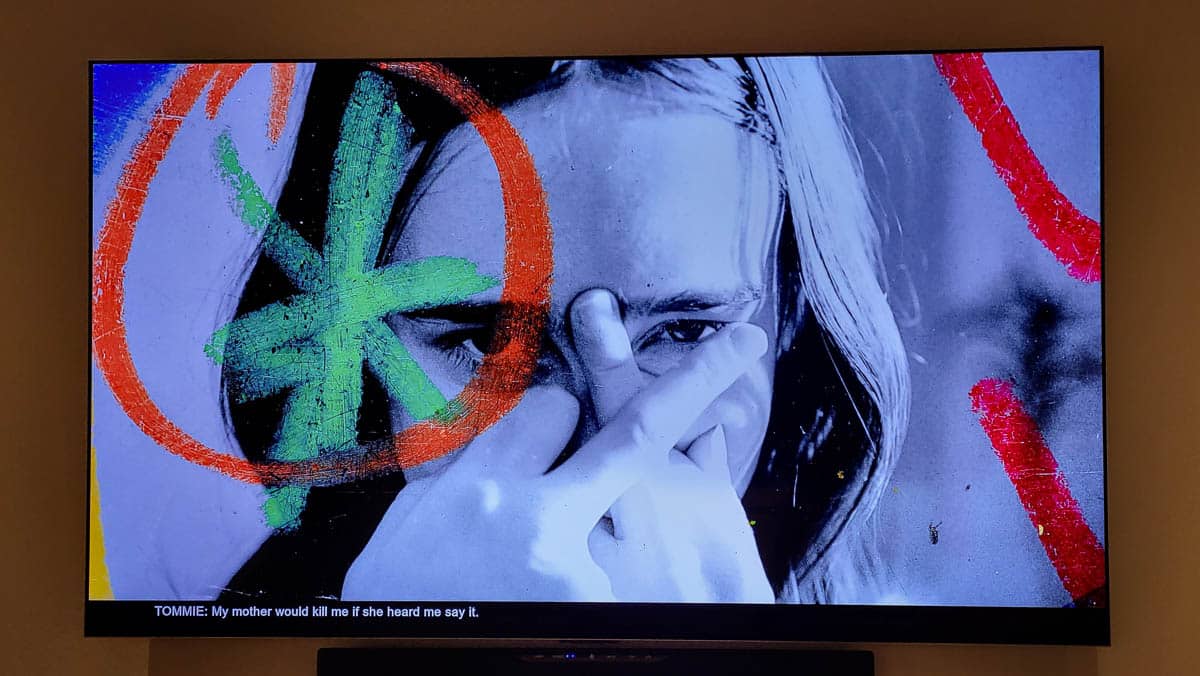Upon seeing the hero image employed on The Image Centre website to promote Mary Ellen Mark’s Ward 81 exhibition, I immediately feared the worst. The dramatic black-and-white photograph of a woman warily peering through a tiny room window in the Oregon State Hospital’s high-security psychiatric facility for women, suggested that Mark’s 1979 collection might exploit and sensationalize its marginalized, vulnerable subjects. To my great relief, this proved to be far from the case.
Entering The Image Centre, I was confronted by a stark square wall, painted teal with the exhibition title declared in militaresque stencil font. The institutional theme continued inside, with the imposing text repeated on the main wall, adjacent to a floor plan of the Oregon State Department of Corrections building containing Ward 81, where women psychiatric patients were sequestered until its closure in 1977.
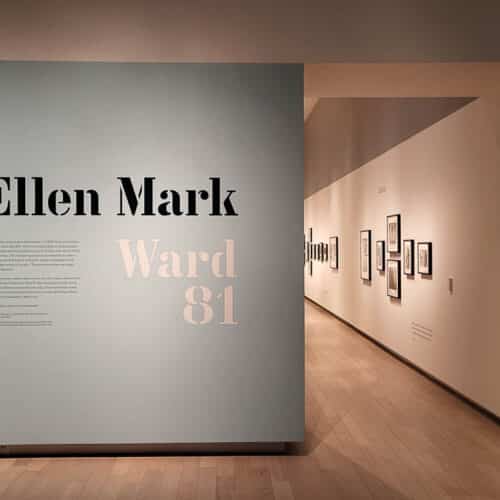
Their disembodied voices, alternately sullen and anguished, emanated from behind the wall. The audio was from “Moonlight Heaven Black,” a nine-minute video produced by Mark’s partner Martin Bell from stills and tape recordings from her and collaborator Karen Folger Jacobs’ 36-day stay at the institution in early 1976. The harrowing stream-of-consciousness film is excerpted from Ward 81 Voices, whose world premiere I was compelled to see at the Hot Docs Ted Rogers Cinema on March 5.
The journey through Ward 81 began with Mark’s production stills from One Flew Over the Cuckoo’s Nest, filmed on location in the Oregon State Hospital’s psychiatric ward. Later, the unprecedented access granted to Mark and Folger Jacobs enabled them to produce a nuanced, empathetic portrayal of the women’s enduring humanity. The duo’s highly sensitive approach is evidenced by their use of model releases, omission of surnames, diagnoses and identifiable details, and continuous consultation with hospital superintendent Dr. Dean Brooks. An initially rejected nude bathtub photo, for instance, was eventually accepted for publication as an archetypal “portrait of loneliness.”
Each woman’s silver-gelatin black-and-white portraits were grouped together throughout the gallery walls, coupled with heartrending quotes such as Mary Iris’s “You don’t know what it is like to be sick like me.” Exploring the exhibition thus felt like walking through Ward 81 itself. In doing so, a swath of emotions flooded over me: sympathy, fear, amusement at lighter everyday moments and horror—at Debbie’s gaping self-inflicted thigh wound and Mark’s documentation of electroshock treatment.
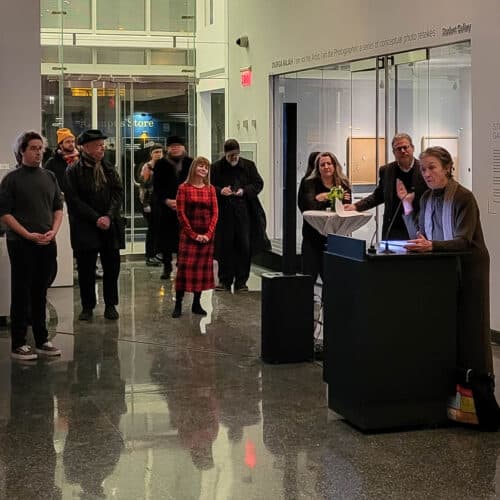
Mark expressed that her intent was to give these women a voice and help them make contact with the outside world. Based on her thoughtful methods, recorded commentary and final photographs, this clearly rings true in a remarkable body of work whose theme of mental health awareness, as Folger Jacobs noted during the Ward 81 Voices book launch, is more relevant than ever today.
In contrast to the confining constructed world of Ward 81, Lydia Ourahmane’s Tassili explores the expansive natural environment of Tassili n’Ajjer National Park in Algeria’s Sahara Desert. Arriving at Mercer Union expecting to see a series of stills, I was surprised to enter a dark high-ceilinged space dominated by a single 4K video playing on a massive 7.5x4m projection screen. Visitors are invited to sit on five black bean bag chairs or a long bench along the back wall, a casual arrangement reminiscent of a home basement screening.
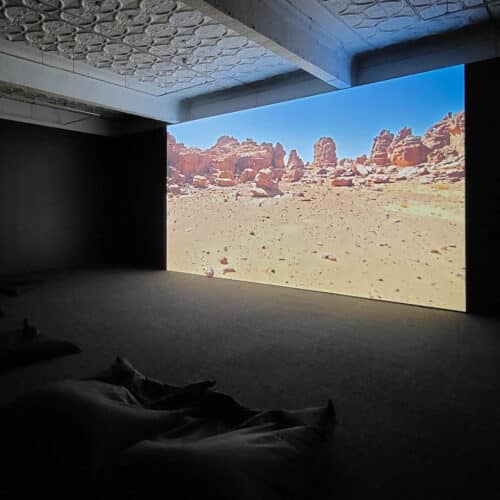
The large-scale screen made for immersive viewing, augmented by an original stereo soundtrack delivered through a 4.1 speaker setup, ranging from ambient and hypnotic to cinematic and kinetic. Presented through four sections of music, the 47-minute first-person video documents Ourahmane and crew’s 13-day journey through a surreal landscape of sandstone pinnacles, arches and deep gorges, punctuated throughout with prehistoric engravings and cave paintings. Digital animations and sweeping camera movements heighten the otherworldly voyage.
Although highly sensory, Tassili is passive compared to Ward 81, in which visitors navigate at their own pace the comprehensive exhibition, including artifacts such as newspaper clippings, patient intake forms, model releases, correspondence and early book layouts. The accompanying Ward 81 Voices book and documentary also offer a variety of ways to engage with the material. While traversing the incredible world of Tassili evokes a similar stream-of-consciousness experience, visitors are handed a one-size-fits-all experience based solely on the ordered sights and sounds of the creators.
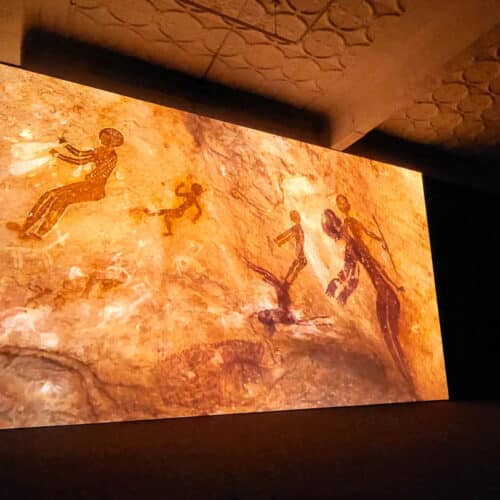
Ultimately, both exhibitions provide passage through alien worlds marked by extraordinary physical and emotional landscapes—places, for better or worse, unbeknownst to most.
Ward 81 is on at The Image Centre until April 1.
Tassili is on at Mercer Union until April 15.
Photography by Andy Lee

